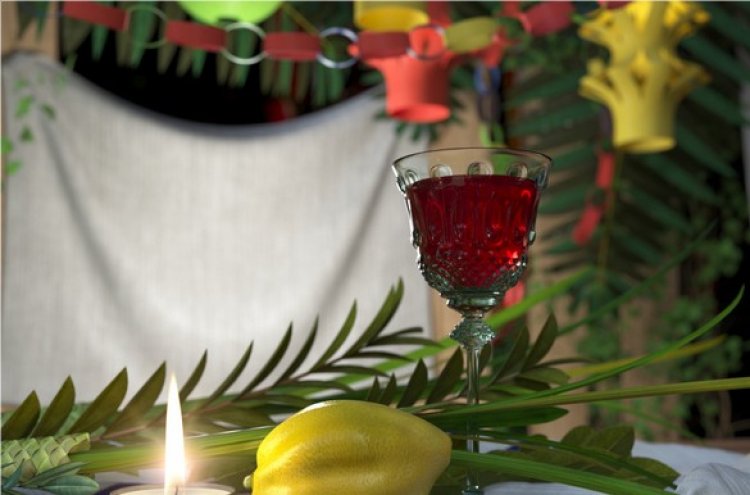
On Sukkot one may transfer fire and cook.
* * *
Hello, Rabbi. I wanted to know is I can purchase cosmetics on chol hamoed not because of a special pleasure but as an item that is always needed. And what about clothes and shoes?
All purchases and business deals are prohibited on the holiday. One can buy something if it is a holiday need or if there is a special sale for these days only, in which case the purchase is termed as “something that will be lost” if it is not bought right away in which case it is permitted.
* * *
My family doesn’t want to make a sukkah and I’m the only one who wants it. I want to know: is it possible for a girl to celebrate the holiday of Sukkot without a sukkah?
Women are exempt from having to stay in a sukkah. You can keep all the holiday meals and the other laws as usual without a sukkah.
* * *
A family member celebrated a bar mitzvah for his son on chol hamoed Sukkot. What is the law concerning the sukkah. What may be eaten in the hall if there is no sukkah? Or maybe one is completely forbidden to eat?
Women may eat everything outside a sukkah. A man may only drink water and eat fruit, fish and meat, without bread or pastries. It’s a good idea to try and convince the father of the bar mitzvah boy not to celebrate his son’s becoming bar mitzva by doing a prohibition. He should wait until after Sukkot or alternatively, find a hall that offers a sukkah to eat in.
* * *
What is the simple reason for shaking the Four Species (we know the reasons given by the midrash, including the Ramchal’s reason that it shows we are victors in a war, it makes holes in heaven to bring down rains, the Four Species are like different kinds of people, creating unity). Maybe my assumption is not right and there is no simple reason and it is an unfathomable command like the Red Calf?
The simple reason is that since the Torah states explicitly that Sukkot is the time of our happiness, therefore we take these Four Species and shake them. Shaking branches is an expression of happiness that was common in the Bible period. It is stated about King David that when he brought the Holy Ark to the city of David, he and his attendants rejoiced and were happy with a “shaking” instrument (Samuel II).
In addition, the Sefer Hachinuch writes (Commandment 324): “A person is affected by the actions that he does constantly, and his thinking and ideals are inclined after his deeds, whether good or bad. Therefore G-d decided to give the Jews merit by giving them many commandments, so their mind would be occupied with good all day long. Among the commandments we were commanded to involve our minds in G-d’s pure service is the commandment of tefillin, which are donned opposite those parts of a person’s body which are the repository of one’s intelligence — the heart and the brain. In this way, all his thoughts will always be affected for the good and he will daily remember and always be careful that his deeds be all honest and righteous. The commandment of lulav with the other three species also has the same goal. This holiday occurs during days of great happiness for the Jews, because it is a time when they are bringing their crops and fruits into their homes, which is why it is also called Chag Ha-Asif, the Holiday of Ingathering. G-d commanded that we make a holiday at exactly this time, so that the happiness we feel can be directed towards gratitude to Him. Since happiness often leads to carnal desires and can make a person forget his fear of G-d, G-d commanded us to take in our hands items that remind us that all the happiness in our heart should be directed to G-d and His honor. He desired to remind us of this when it is a time of happiness for us, because it is known that these four items naturally make the heart of those viewing them happy.
* * *
I am working for a manpower company in Hapoalim Bank. My question is about working on chol hamoed. I took two days vacation (sick leave) after Yom Kippur and I doubt the manpower company would let me take another 5 consecutive days of vacation during chol hamoed after I was “absent” for two days. May I continue working during chol hamoed or do I have to take chol hamoed off immediately? My work includes depositing cash, depositing checks, drawing cash, drawing checks, carrying out coupon payments, filling out bank orders, withdrawing and closing deposits, etc.
Try to get off from work. If they don’t allow you, you may do your above work on chol hamoed.
The answers were provided by Rabbi Menashe Israel and Rabbi Binyamin Shmueli.
